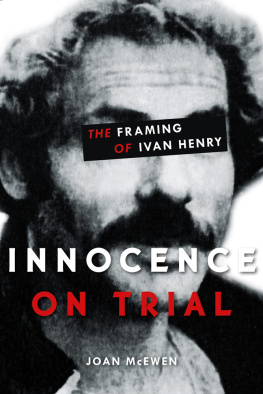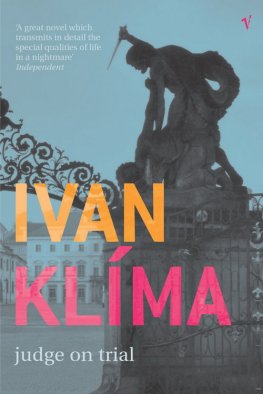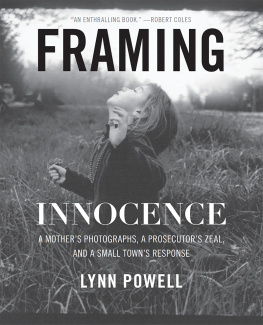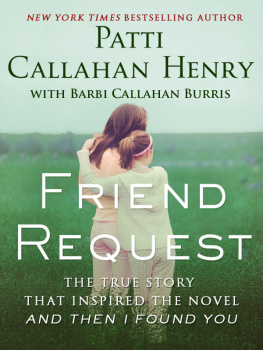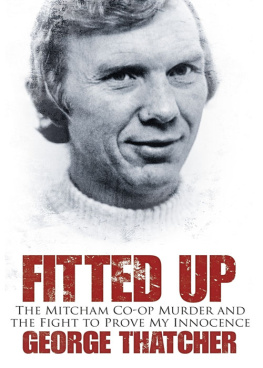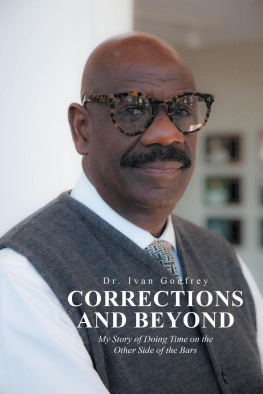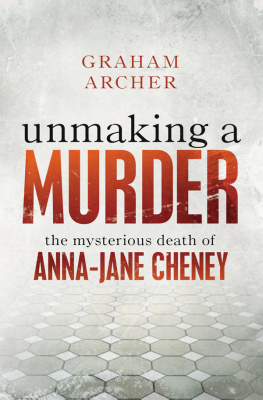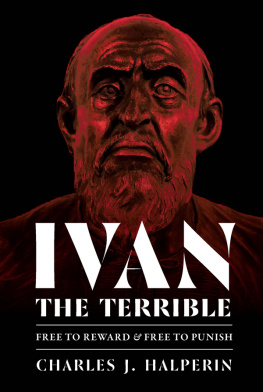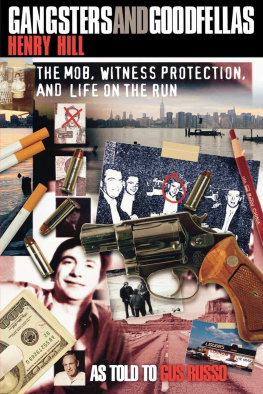ABOUT THE AUTHOR
JOAN MCEWEN is a Vancouver-born lawyer, labour arbitrator, and writer.
Joan clerked for BC Supreme Court chief justice Nathan Nemetz from 197677, then articled with Farris and Company before clerking for Paul Weilers newly minted BC Labour Relations Board. After practising labour law for twelve years, Joanhaving adopted, with lawyer Irwin Nathanson, the first of their two (blood brother) sonsset up shop as a labour arbitrator in 1990.
Joan caught the writing bug in 2006 enrolling in the Writers Studio at Simon Fraser University. She has been writing ever since. Indeed, it was while working on her second novelnow tucked away, as is the first, in a bottom drawerthat she saw Ivan Henry on television for the first time.
Today, Joan is actively involved advocating for the post-convictedinnocent and guilty alikeby lobbying for prison and post-prison conditions conducive to rehabilitation and successful reintegration into society.
AUTHORS NOTE
THIS BOOK IS based on lengthy interviews with Ivan Henry and many of the people involved with his case, as well as people familiar with his life and his decades in various prisons. In some cases I have changed their names to protect their anonymity. Names of all the complainantsin both the Ivan Henry and the Donald McRae (Smallman) caseshave been changed in accordance with court-ordered publication bans.
During the trial, Ivan Henry impugned the credibility of the complainantssaying that, because he had not attacked them, they must also be fabricating the attacks themselves. Unlike Henry, I have never doubted that the women were, as they testified, sexually assaulted at knifepoint. Unless one has been through such an experience, it is impossible to comprehend the pain and trauma that comes with it. I imagine this pain and trauma has only been worsened by the ongoing lawsuit regarding Henrys compensation, his claim of innocence, and, finallyin the event that his innocence is finally establishedthe prospect that the actual culprit has never been brought to justice.
I have been made privy to only a small fraction of the documentation this case has generated. Apart from a sampling of the documents disclosed after the trial, as well as certain information arising from Henrys 2009 application to have his appeal reopened, I have relied primarily on the preliminary hearing and trial transcripts. The dialogue in the book has been reconstructed either from those transcripts or from the recollections of those persons whom I was able to interview.
Early on in the process, I reached out to Henrys lawyers, but they declined to talk to me. In May 2012, I couriered to them a summary of my malicious prosecution argument (including my assertion of fake lineup photos and exhibit substitution), but they did not acknowledge receipt. To date, that assertion has not been made part of their civil claim.
IT IS LIKELY that wrongful convictions are disproportionately high in two groups of inmatesthe first being members of our Aboriginal community. Howard Sapers, who as the Correctional Investigator of Canada serves as the ombudsman for federally sentenced offenders, reported in 2013 that although Aboriginals make up only 4 percent of Canadas population, they constitute 23 percent of inmates in federal prisons. It can only be presumed that the number of wrongful convictions of Aboriginal Canadians reflects this same pattern of over-representation.
The second group involves those innocent persons who plead guilty as part of a plea bargain so as to avoid a harsher sentence. Although the precise numbers or demography of such persons cannot be known, a large proportion of those likely lack the resources to mount an effective defence on their own behalf.
I WISH TO extend my gratitude, first and foremost, to Ivan Henry. For weeks, months, and, indeed, years on end, he answered my questions with good humour and more than a little forbearance. Although we hit more than a few speed bumps along the way, the bond of trust between us deepened over time.
Big thanks to Gary Stephen Ross. No one could ask for a better editor, friend, and writing mentor.
I extend my gratitude to the many other devoted people who work in the innocence fieldincluding Canadian exonerees such as Jim Driskell, Ronald Dalton, and Tom Sophonow. Each of them, in his own way, has helped me understand how an innocent man could end up serving twenty-seven years in prison. A tip of my hat as well to the innocence projects springing up all over the worldand special thanks to Tamara Levy, executive director of UBC Law Schools Innocence Project, for her support and encouragement.
I humbly dedicate this book not only to my husband, Irwin Nathanson, and our boys, Cory and Tedwithout whom none of this would have been possiblebut also to the men and women who have been convicted of, or confessed to, crimes they did not commit.
The case of Ivan Henry shows there is always hope.
CHAPTER 1
THE ARREST
MAY 12, 1982. A bright, sunny Vancouver day, blue canopy stretched overhead. Elbow sticking out the window of his car, the breeze playing havoc with his wavy red hair, Ivan Henry sings along to the radio. Cruising the cityenjoying the snow-capped mountains and glittering oceanin his little canary-yellow AMC Spirit, hes feeling great. Nothing like a pancake breakfast, spiffy new clothes, and the thought of his two little girls making faces in the mirror that morning while he shaved off his moustache. Nine and seven already. No way am I ever going back to the joint, he vowsan eye, as always, on the rear-view mirror.
Freedoms overrated, kid, his best jailhouse friend, Manfred Cullen, used to say. Give me a bed to sleep in, food in my belly. If the toughest decision of the days when to take a crap, so be it. But they were young then; kids, really. Young and full of swagger. Far too young to be locked up, with nowhere to go but down. That was then, and this is now.
Feeling the heatthe bad kindHenry had spent the past week up north, doing a little fly-fishing with his pal, Andr, and checking out the area as a possible new home for his family. Not that he hadnt stayed in close touch with his former parole officer. Conroy, hed say, Ive got a rotten feeling in my belly. Theyre out to get me. I can feel it. What he didnt say was that Jessiehis former wife, though they still cohabit when their nerves can stand ithad fessed up and told him about the police paying her a visit. When he pressed her to elaborate, shed clammed up.
Youre imagining things, Chris Conroy said. You got through mandatory supervision without a glitch. Except of course for that minor little weed thing.
Just as well the lady never reported the B and E in January, Henry thinks, wiping his brow. Hed be a goner for sure.
Jessies dealer, Johnniea no-good SOB addicted to heroin and who knows what elsehas a pipeline to the Vancouver Police Department, no doubt about it. All the while acting like Henrys best friend, telling himwink-wink, nod-nodthat a red-haired so-called rip-off rapist had attacked yet another woman. Johnnie, like most junkies, would sell his soul for the right price.
Breathing in the scent of summer, Henry rejoices in his freedom. When his sentence for the Winnipeg beefs ended in late January, hed punched the air with his fist. Never had he felt more hopeful and determined to turn the corner. He waves to the gorgeous woman in the convertible next to him, her chestnut hair streaming in the wind, and counts his blessings. Like his new job, hawking fancy-ass blue jeans from the back of his car. Hatchback open, he barely has time to put up the signDesigner Jeans, $12 a Pop!and ladies from Smalltown, BC, come running. How sweet is the feel of money in his pocket. One day, he grossed $600. After forking over most of it to the wife, hed treated himself to the duds hes wearing now, a blue velour shirt and Jordache jeans from his own stock.

